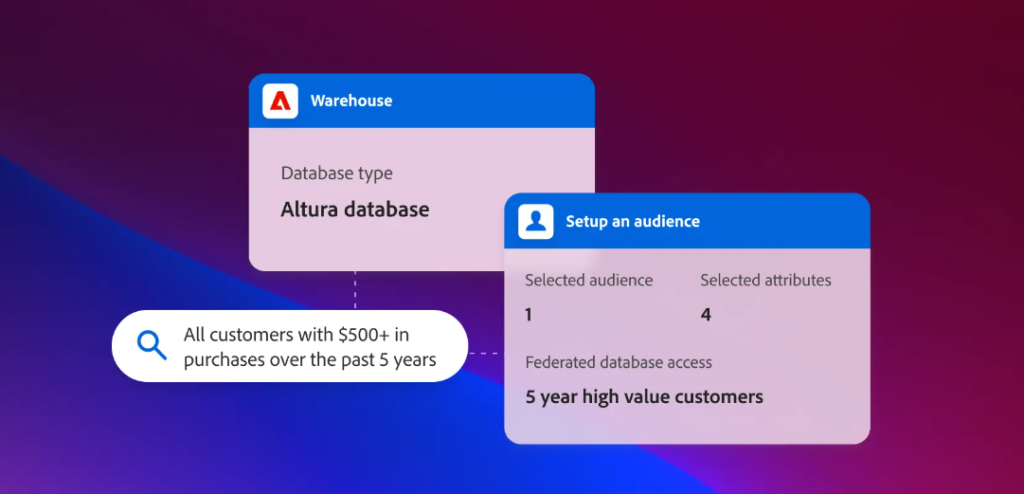Data Security and Privacy Are Now Vital to CX
May 12, 2022Data security and privacy aren’t just essential to your data governance strategy — they’re now key components of customer experience (CX).
As part of our inaugural CX IQ Index, we surveyed more than 400 consumers about what they find most important to customer experience — and how they believe brands are either meeting expectations or falling short.
Across various elements of CX — from personalized communications to loyalty programs — data security and privacy emerged as consumers’ top priorities.
When consumers were asked to rate how important different characteristics are when interacting with a company to get information, make a purchase or resolve an issue, 55% rated “protects my data” as “very important” (90 or higher on a 0-100 scale) — more than any other characteristic.
“Respects my privacy” was a close second, with 48% of consumers saying it’s “very important” to CX.
Read on to understand why — and what brands can do to measure up to customer expectations.
Data Security and Privacy Are Now Vital to Customer Experience
Why Security and Privacy Are Top of Mind
The results of the 2022 CX IQ Index align with recent digital marketing trends.
The death of third party cookies has been dominating headlines for months — and its origin can be traced back to consumer sentiment regarding how their data is collected, shared and leveraged.
From Europe’s General Data Protection Regulation to the California Consumer Protection Act, regulators around the world are working to enhance customer data security by introducing new protection and privacy rules at an exponential rate. And as technology companies such as Google, Apple and Facebook rush to stay ahead of new laws, brands find themselves struggling to adapt to a privacy-first marketing playbook.
One study revealed that 77% of U.S. consumers have found it harder to trust what companies say and do in recent years. Perhaps more concerning is that, after losing trust in a brand, 85% of consumers say they’ll avoid engaging with it again.
While poor product quality and misleading marketing tactics are sure to damage customer relationships, the results of the 2022 CX IQ Index — along with industry trends as a whole — make it clear that data protection and privacy are just as important to maintaining customer trust.
This puts brands between the proverbial rock and a hard place. Many consumers don’t trust them to use their data wisely, encouraging new regulations for how customer data can be gathered and used. At the same time, expectations regarding customer experiences continue to rise.
More than two-thirds of global consumers say they now have higher expectations for brands than they did previously. And 50% of consumers say they’ll switch to a competitor if a brand doesn’t provide them with satisfactory CX even one time.
Customer data is what fuels the personalized, highly relevant customer experiences consumers crave. But it can’t come at the cost of customer data security and privacy.
The answer? Ethically collected — and consented — first-party customer data.
The Role of 1st Party Data in a Privacy-First World
Unlike anonymous third-party data, first-party data is collected directly from consumers across various brand touchpoints, such as when a shopper signs up to receive an email newsletter or use a brand’s mobile application.
This data is more accurate, and, with the disappearance of third-party cookies, a first-party data strategy will be essential to customer acquisition and conversion in the future.
Unfortunately, brands aren’t competing on a level playing field. While some brands have direct access to their end customers and high volumes of authenticated traffic across digital channels, others do not.
That’s why businesses such as banks and streaming services — which have built collecting and authenticating digital traffic into their operating models — have a head start.
But no matter your customer data maturity, the goal is the same: collecting high-quality data and maximizing its business value. What brands have to keep in mind is how to do so while prioritizing data security and privacy.
Make Managing Data Protection the Cornerstone of Your Strategy
Brands in some industries may have an advantage when it comes to obtaining first-party data, but that doesn’t mean they’re meeting customer expectations.
For example, while financial services brands tend to do best in consumers’ eyes when it comes to data protection and privacy, businesses still overestimate their performance. While 62% of financial services brands rated themselves as “very strong” when it comes to respecting customer privacy, only 45% of consumers felt the same way.
To get the data necessary to provide superior customer experiences — and maintain customer trust in the process — brands must:
Prioritize Transparency
Voluntary agreement is now the standard for collecting customer data. But brands should also be clear about what kind of data they plan to collect, as well as how they plan to use it.
Explaining why you’re asking for this data, and how it can benefit customers, will go a long way toward building trust.
The goal should always be to collect what’s necessary to deliver better customer experiences, not just gather as much personal information as possible. By making transparent data collection based on open communication and consumer consent the norm, brands can demonstrate respect for consumer privacy while staying ahead of industry trends.
Inspire Consumers to Share
While there will always be consumers who prefer not to share their data, 66% say they’re willing to if it means getting additional value, such as better customer service or easier shopping experiences.
It’s up to brands to not only provide value in exchange for customer data, but give consumers a reason to confirm their identities. This will help brands provide more personalized, relevant CX as anonymous identifiers go away.
Special offers and loyalty programs not only help build customer loyalty, they also provide brands with a chance to authenticate customer data by requiring some form of registration.
Using a progressive profiling strategy, brands can collect the bare minimum of information to verify customer identities — such as an email address — and then enrich the customer profile over time by collecting new details at different stages of the customer journey.
Build Data Security and Privacy Into Your Tech Stack
The marketing technology you use plays a huge role in keeping customer data safe — that’s why it’s essential to work with partners that take data protection and privacy seriously.
Technologies built on anonymous third-party data — such as data management platforms — are becoming obsolete, forcing brands to turn to new solutions. For instance, 67.3% of marketers say they’re investing in customer data platforms (CDP) in response to third-party cookie deprecation.
But the right CDP offers more than a way to overcome the loss of third-party cookies for identifying and targeting prospective customers — it also provides brands with the safeguards it needs to maintain compliance with ever-evolving regulations. By ensuring you’re using a CDP designed with data security and regulatory compliance in mind, you can optimize customer experiences while reinforcing customer trust.
Learn More About Data Security and Privacy
Download the 2022 CX IQ Index to learn more about the role of data security and privacy in customer experience and what you can do to meet customer expectations.
This post first appeared on the ActionIQ blog. To see the full article, click here.


